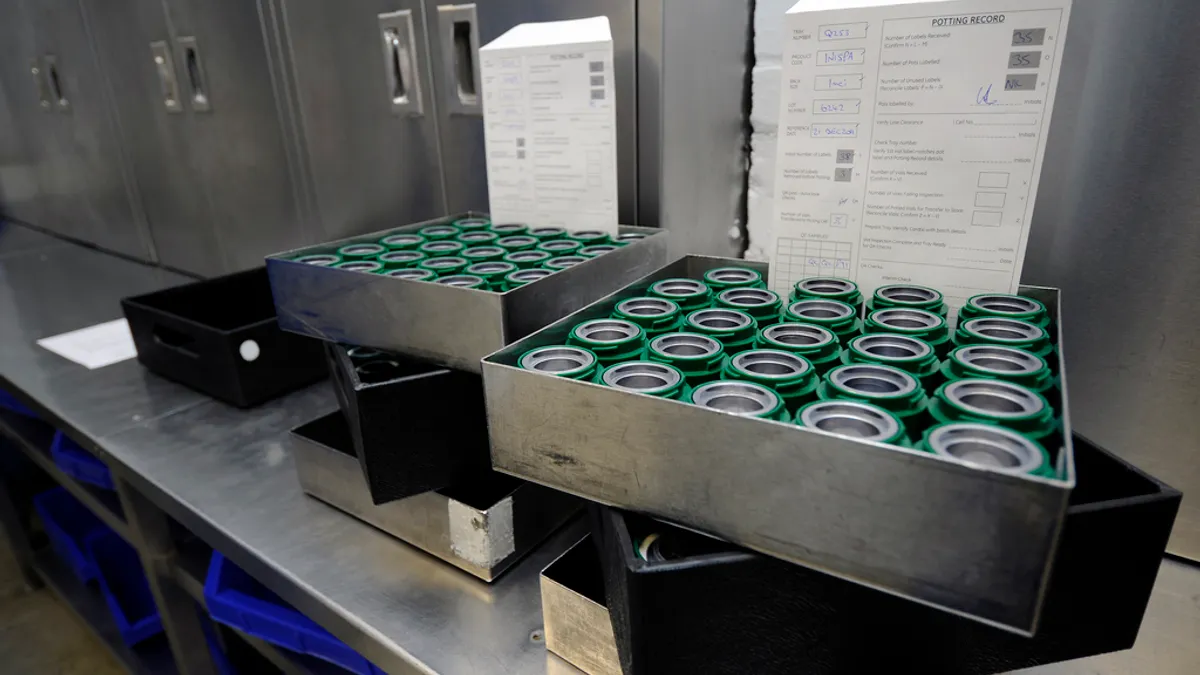Dive Brief:
- An investigation into India's pharmaceutical supply chain conducted last year by Nordea Wealth Management's head of sustainable finance fell flat after his efforts to reveal the industry's environmental impacts were stonewalled in the country's bureaucracy, even leading to prison time for the investigator, according to a recent Financial Times report.
- Regardless of the incident, the Scandinavian wealth management firm has continued investigations of the industry's India- and China-based manufacturers in an effort to push Big Pharma giants to take responsibility for their suppliers' violations, as most of the world's drugs or ingredients therein are manufactured in these countries.
- The drug manufacturing industry is among both countries' most profitable endeavors, but sustainability-conscious initiatives have begun to clamp down in an effort to bring the companies up to rising global standards. Groups like the Pharmaceutical Supply Chain Initiative (PSCI) are hosting conferences worldwide to bring attention to the subject, although only 12% of the 140 largest pharmaceutical companies are participating members, according to the Times.
Dive Insight:
Maintaining operations in foreign countries can be difficult given diverse regulations and manufacturing practices, but regardless of where the components are sourced, each participant in modern supply chain is expected to conform to the end-product's distribution standards, particularly when it comes to food and drugs.
As a result, the Food and Drug Administration has oversight over many oversea companies' operations, and recently the regulator has been clamping down on Indian and Chinese drug ingredient producers in an effort to raise the countries' compliance with good manufacturing practices.
But the Financial Times article raises other concerns which the agency does not have the power to address, notably environmental and ethical concerns.
The article brings up concerns of the effects of dumping waste in Indian waterways, which could increase the populations' anti-bacterial resistance. In addition to these concerns, the PSCI recently announced a partnership with U.K.'s Verisk Maplecroft to investigate modern slavery in the pharmaceutical supply chain.
Investigations into these issues are sparse, but widely publicized supplier violations can spark consumer outrage and harm a company's status. Yet, despite the PSCI's efforts, responsibility for pharmaceutical supply chains largely remains with the supply chain manager as opposed to a regulator.














